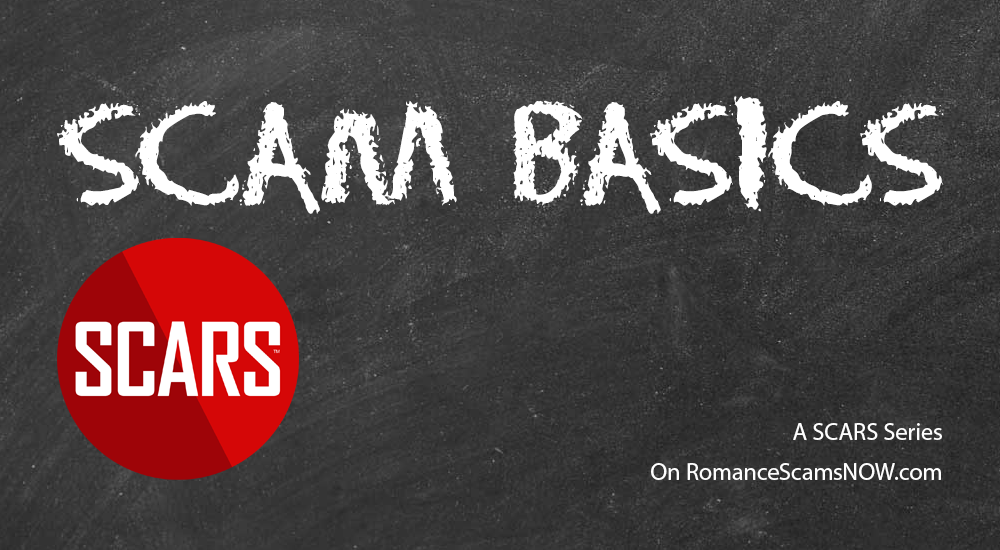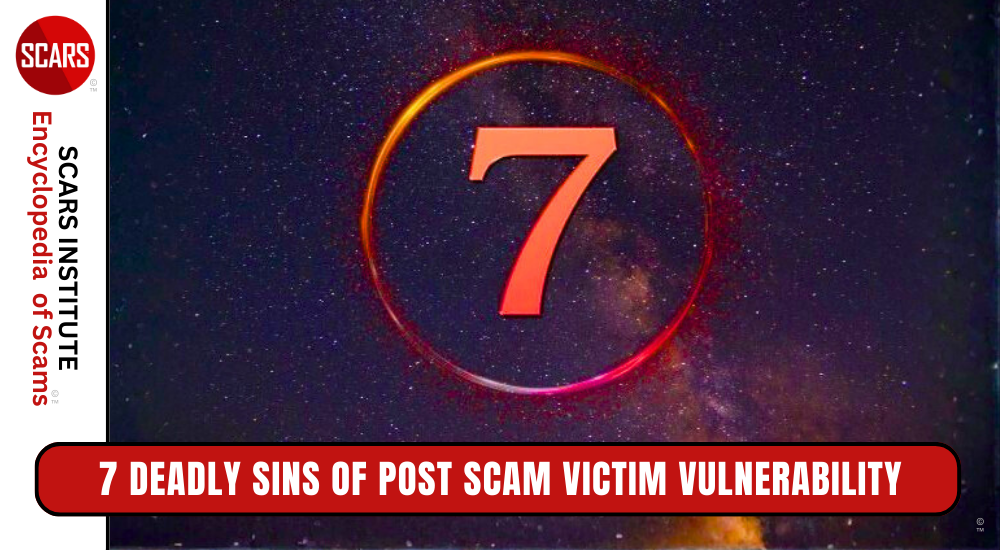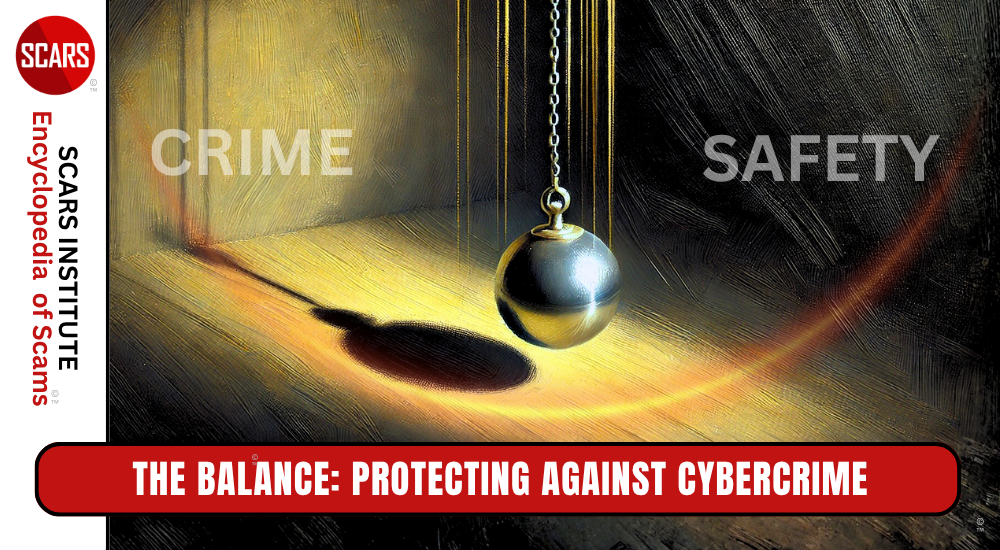
SCARS Institute’s Encyclopedia of Scams™ Published Continuously for 25 Years

United States
United States Law Enforcement or Regulatory Agencies
U.S. Criminal Investigative Agencies
-
- U.S. Secret Service – the Secret Service wants to talk to you
- Find the nearest U.S. Secret Service Field Office to youhttps://www.secretservice.gov/contact/field-offices
- Crypto Scams can also be reported by email to: CryptoFraud@SecretService.gov
- Victims who require further assistance may call 1-888-813-USSS
- Deaf and hard of hearing 202-406-5370
- U.S. Federal Bureau of Investigations [FBI] – https://www.FBI.gov/ – REPORTING WEBSITE/URL: https://www.ic3.gov/
- U.S. Citizens & Immigration Service – Fraud Reporting – https://www.uscis.gov/ – REPORTING WEBSITE/URL: https://www.uscis.gov/scams-fraud-and-misconduct/scams-fraud-and-misconduct
- U.S. Internal Revenue Service [IRS] – http://www.irs.gov – REPORTING WEBSITE/URL: https://www.treasury.gov/tigta/reportcrime_misconduct.shtml
- U.S. Secret Service – the Secret Service wants to talk to you
U.S. Regulatory Agencies
-
- U.S. Federal Trade Commission at https://reportfraud.ftc.gov/#/?orgcode=SCARS – the FTC will send a copy of the report to the FBI
- U.S. Securities and Exchange Commission (online complaint) – http://www.sec.gov/complaint/select.shtml
- U.S. Department of Justice, National Elder Fraud Hotline – https://ovc.ojp.gov/program/stop-elder-fraud/providing-help-restoring-hope
- U.S. Federal Reserve System – https://www.federalreserveconsumerhelp.gov/ – REPORTING WEBSITE/URL: https://forms.federalreserveconsumerhelp.gov/secure/complaint/formComplaintIntro
- U.S. Department of Homeland Security, Cybercrimes & Infrastructure Security Agency – Report to CISA | CISA
NGO
U.S. State & Territories Cybercrime Police Units
Alabama Law Enforcement
Alaska Law Enforcement
American Samoa Law Enforcement
Arizona Law Enforcement
Arkansas Law Enforcement
-
- Arkansas Internet Crimes Against Children Task Force Program – Arkansas Department of Public Safety
- Boone County Sheriff’s Office: Criminal Investigation Division
- Fayetteville Police Department: Criminal Investigation Unit (Task Force Officers) and Special Investigation Unit
- Fort Smith Police Department: Computer Forensics Team
- Jonesboro Police Department: Criminal Investigations: High-Tech Crimes Unit
- Rodgers Police Department: Criminal Investigation Division: Crimes Against Person Unit
- Texarkana Police: Cyber Crime & Fraud
California Law Enforcement
-
- eCrime Unit | State of California – Department of Justice – Office of the Attorney General
- Bureau of Investigation, State of California, Department of Justice
- California Cyber Crime Center, State of California, Department of Justice
- City of Chula Vista: Investigations Division: Digital Evidence Unit (DEU)
- City of Upland: Police Department: High Tech Crime Unit
- County of Santa Clara: Office of the District Attorney: High Tech Crimes Unit
- Department of Justice: Identity Theft Victim Checklist, State of California
- eCrime Unit, State of California, Department of Justice
- Fremont Police Department: Scams, Fraud, Financial Crimes
- Identity Theft Victim Checklist, State of California, Department of Justice
- The Irvine Police Department Computer Crimes Unit
- Long Beach Police Department: Detective Division: Computer Crimes
- Los Angeles Police Department (LAPD): Commercial Crime Division
- The Northern California Crimes Task Force
- Office of Alameda County District Attorney: CEWPD: ID Theft & Hi-Tech Crime
- Orange County Sheriff’s Department: Cyber Crime Detail
- Sacramento Valley: Hi-Tech Crimes Force
- Ventura County District Attorney: Bureau of Investigation: High Tech Task Force
Colorado Law Enforcement
-
- Identity Theft/Fraud and Cyber Crimes Unit Role | Colorado Bureau of Investigation
- Colorado Springs Police Department: Technical Investigations Section: Computer Forensics Unit
- Mesa County Sheriff’s Office: The Complex Crime Unit (CCU)
- Longmont: Public Service Department: Police Service Division: Property Crimes Unit
- Pueblo County Sheriff’s Office: High Tech Crimes
Connecticut Law Enforcement
-
- Computer Crimes and Electronic Evidence Laboratory
- Connecticut: Division of Emergency Management and Homeland Security: Cybersecurity and Cybercrimes
- Glastonbury Police Department: Connecticut Center for Digital Investigations (CDI)
- The District of Connecticut’s Cybercrime Program, U.S. Department of Justice
- Waterbury Police Department: Detective Division: Computer Crimes Unit
Delaware Law Enforcement
District of Columbia Law Enforcement
Florida Law Enforcement
-
- Report a Computer Crime (state.fl.us)
- Computer Crime Center, Florida Department of Law Enforcement
- Boca Raton Police Service Department: Investigation Services Bureau: Economic and Computer Crimes Unit
- Daytona Beach Police Department: Advanced Technology & Cyber Crimes Unit (ATAC)
- Escambia County Sheriff’s Office: Investigation Unit: Computer Crime Unit
- Florida Department of Law Enforcement- Computer Crime Center
- Leon County Sheriff’s Office: Financial Crimes Unit
- Marion County Sheriff’s Office: Major Crimes Unit: Internet Crimes Against Children (ICAC)
- Miami-Dade County Police Department: Homeland Security Bureau: Intelligence and Investigation Section (IIS)
- Okaloosa County Sheriff’s Office: Criminal Investigations Division: Special Investigations Section
- Seminole County Sheriff’s Office: Diversified Investigation Unit: The Digital Forensics Unit
- St. Petersburg Police Department: Crimes Against Person Unit: Economic Crimes Unit
- Tampa Police Department: Criminal Investigations Division: Major Crimes Bureau (Cyber Crime Squad)
- Walton County Sheriff’s Office: Criminal Investigations
Georgia Law Enforcement
-
- Georgia Cyber Crime Center (G3C)
- Georgia Bureau of Investigations: Investigation Units: Georgia Cyber Crime Center
- Alpharetta Police Department: Department of Information Technology
- Cobb County Police Department: Technology-Based Crime Unit
- Douglas County Sheriff’s Office: Investigations Division: Internet Safety
- Forsyth County Sheriff’s Office: Criminal Investigations: Hi-Tech Crimes
- Gwinnett: Criminal Investigations Section: The Electronic and Financial Crimes Unit
- Identity Theft, Georgia Department of Law’s Consumer Protection Unit
- Roswell Police Department: Criminal Investigations: Property Crime Section
Guam Law Enforcement
Hawaii Law Enforcement
Idaho Law Enforcement
Illinois Law Enforcement
-
- The City of Naperville: High Tech Computer Crimes/ General Assignment Unit
- Dixon Police Department
- Illinois Attorney General: Illinois Computer Crime Institute
- Lake County Police Department: Cyber Crime Unit
- O’fallon Police Department: Criminal Investigations Unit: Southern Illinois Cyber-Crimes Unit
- Rockford Police Department: Financial and Property Crimes Unit
- Winthrop Harbor Police: Cyber Crimes Unit
Indiana Law Enforcement
-
- Cybercrime & Investigative Technologies Section, Indiana State Police
- Elkhart County Sheriff’s Office: Detective Bureau
- Fishers Police Department: Special Investigations Unit
- Indiana State Police Cyber Crime Unit
- Indiana State Police: Cybercrime & Investigative Technologies Section
- Indiana State Police — Report an Internet Crime
- Indiana University Police Department
- Madison County Prosecutors Office: High Tech Crime Unit
- Tippecanoe County High Tech Crime Unit
Iowa Law Enforcement
-
- Burlington Police Department: Criminal Investigations Division
- Dubuque County Sheriff’s Office: Criminal Investigation Division
- Iowa Department of Justice, Office of the Attorney General — Security Breach Notification
- Iowa Information Security Division
- The United States Attorney’s Office: Southern District of Southern Iowa: Criminal Division: Cyber-crime, Child Exploitation, Human Trafficking
Kansas Law Enforcement
-
- Boone’s County Sheriff’s Cyber Crimes Task Force
- Cyberstalking, Kansas Attorney General
- Hays Police Department: High Tech Crime Unit
- Kansas Attorney General: In Your Corner: Your Identity
- Olathe Police Department: Investigations: Property Crimes
- Your Identity, In Your Corner, Kansas Attorney General
Kentucky Law Enforcement
-
- The Bowling Green Police Department: Criminal Investigations Division
- Cyber Safety, Kentucky Attorney General
- Hazards Police Department: Investigations Division
- LaGrange Police Department: Cyber Crime
- Louisville Police Department: Crimes Against Children Unit: Internet Crimes
- Paducah Police Department: General Investigations Unit
- Winchester Police Department: Criminal Investigations
Louisiana Law Enforcement
-
- Baton Rogue Police Department: Criminal Investigations
- City of Bossier Marshal’s Office: Cyber Crime Unit
- The Cyber Crime Unit, Louisiana Department of Justice, Attorney General
- East Baton Rouge Sheriff’s Office: Computer Forensics Division
- Louisiana Department of Justice: Attorney General: The Cyber Crime Unit
- New Orleans Police Department: Criminal Investigations Division
- St. Charles Sheriff’s Office: Cyber Crime Unit
Maine Law Enforcement
-
- Banger Police Department: Criminal Investigations Division
- Brunswick Police Department: Criminal Investigation: Cyber Forensic
- Computer Crimes Unit, Maine State Police
- Consumer Protection, Identity Theft & Privacy, Maine Attorney General
- Maine Attorney General: Identity Theft & Privacy
- Maine State Police: Computer Crimes Unit
Maryland Law Enforcement
-
- Baltimore County Police Department: Cyber/Online Crimes
- Calvert County Police Department: Criminal Investigations Unit
- Computer Crimes Unit, Criminal Enforcement Division, Maryland State Police
- Identity Theft Unit, Maryland Attorney General
- Maryland State Police: Criminal Enforcement Division: Computer Crimes Unit
- Montgomery Police Department: Criminal Investigations Unit
- Prince George’s County Police Department: Bureau of Homeland Security and Intelligence
- St. Mary’s County Sheriff’s Office: Criminal Investigations Division
Massachusetts Law Enforcement
-
- Attorney General’s Guide to ID Theft for Victims and Consumers
- Belmont Police Department: Computer Crime Unit
- Brookline Police Department: Specific Unit
- Burlington Police Department
- The Cyber Crime Division, Office of the Attorney General
- Dedham Police Department: Metro LEC
- Dover Police Department: Cyber-Crime Investigations
- Massachusetts State Police: Specialized Units: Cyber Crimes Unit
- Medford Police Department: Cyber Crime and Data Forensics Unit
- Peabody Police Department: Cyber Crime Unit
- Somerville Police Department: General Investigations Unit
- TechSmart (Private Investigation)
- Winchester Police Department: Computer Crimes Unit (CCU)
Michigan Law Enforcement
-
- Eaton County Police Department: Economic Crimes Unit
- Holland Public Safety: Criminal Investigations Division: Computer Forensics
- Kalamazoo County Sheriff’s Office: Operations Division: Criminal Investigations Section
- Livingston Police Department: Investigation Services Unit
- Macomb County Sheriff’s Office: MACE Reserve Unit
- Michigan State Police: Cyber Section
- Michigan State University Police Department and Public Safety: Digital Forensics and Cyber Crimes Unit (DFCCU)
- Southold Police Department: Internet/Computer Crimes Unit
- State of Michigan: Reporting Cyber Crime
- Van Buren County Sheriff’s Office: Investigation Division: Computer Crimes Unit
- Wyoming City Police Department: Investigations Unit
Minnesota Law Enforcement
-
- Blue Earth County Sheriff’s Office: General Investigations
- Chisago County Sheriff’s Office: Investigations Division: Property Crimes
- Cloquet Police Department: Investigations Division
- Crow Wing County Sheriff’s Office: General Investigations
- Dakota County Sheriff’s Office: Specialty Units: Electronic Crimes Task Force
- Eden Prairie Police Department: Investigations Unit: Criminal Investigations
- Help for Crime Victims, Identity Theft, Office of Justice
- Minneapolis Police Department: Forensics Division: Computer Forensics
- Minnesota Financial Crimes Task Force
- Moorhead Police Department: Investigations Division
- Office of Attorney General Keith Ellison: Identity Theft and Computers
- Olmsted County Sheriff’s Office Investigation Division
- Sherburne County Sheriff’s Office: Computer Forensics & Crime Analysis
- Washington County Sheriff’s Office: Investigations Division: Computer Forensic Services
- Wright County Sheriff’s Office: Criminal Investigations Division: Computer Forensics
Mississippi Law Enforcement
-
- Biloxi Police Department: Criminal Investigations Division: Computer Forensics
- Cyber Crime Unit, Mississippi Attorney General
- Identity Theft, Office of the Attorney General of Mississippi
- Jacksons County Sheriff’s Office: Computer Forensic Division
- Mississippi Attorney General’s Office: Cyber Crime Division
- Richland Police Department: Criminal Investigations Division
Missouri Law Enforcement
-
- Boone County Sheriff’s Office: Cyber Crimes Task Force
- Cassville Police Department: Investigations Unit
- Digital Forensics Investigative Unit, Missouri State Highway Patrol
- Hazelwood Police Department: Criminal Investigations Team: Major Case Squad: Regional Computer Crime Education and Enforcement Group
- Identity Theft, Missouri Department of Revenue
- Independence Police Department: Criminal Investigations
- Jackson County Sheriff’s Office: Investigation Division
- Joplin Police Department: Southwest Missouri Cyber Crime Task Force
- Kansas City Police Department: Cyber Crimes Task Force
- Kirksville Police Department: Kirksville Regional Computer Crimes Unit
- Lebanon Police Department: Lake Area Cyber Crimes Task Force (LACCTF)
- Missouri State Highway Patrol: Digital Forensics Investigation Unit
- Phelps County Sheriff’s Department: The Southern-Central Missouri Computer Crimes Task Force (SCMCCTF)
- Platte County Sheriff’s Office: Western Missouri Cyber Crimes Task Force (WMCCTF)
- Poplar Bluff Police Department Cyber Crimes Task Force
- St. Charles County Police Department: Cyber Crime Division
- St. Joseph Police Department: Electronic Crimes Unit (ECU)
- St. Louis Police Department: Regional Computer Crimes Education and Enforcement Group
- Stone County Sheriff’s Office: Tri-Lakes Regional Internet Crimes Task Force
Montana Law Enforcement
-
- Billings Police Department: Internet Crimes Against Children Task Force (ICAC)
- Bozeman Police Department: Detective Division: Computer Crime Unit
- Computer Crime, Montana Department of Justice
- Investigations Bureau, Montana Department of Justice
- Identity Theft & Security Freeze, Office of Consumer Protection, Montana Department of Justice
- Malta Police Force: Cyber Crimes Unit
Nebraska Law Enforcement
Nevada Law Enforcement
-
- Fraud Protection, Nevada Consumer Affairs
- Henderson Police Department: Investigation Services Division
- Las Vegas Metropolitan Police Department
- Nevada Identity Theft Program, Attorney General
- Nevada Office of Cyber Defense Coordination
- Private Digital Investigations for Individuals and Businesses
- Reno Police Department: Financial/Computer Crimes Unit
- Washoe County Sheriff’s Office: Internet Crimes Against Children Task Force (ICAC)
New Hampshire Law Enforcement
-
- Conway Police Department: Investigative Services Division
- Lebanon Police Department: Cyber Crimes Units
- Major Crime Unit, Investigative Services Bureau, New Hampshire Department of Safety
- Manchester Police Department: Cybercrimes Unit
- Merrimack County Sheriff’s Office: Cybercrime Investigations
- Nashua Police Department (NH): Computer Forensic Unit
- New Hampshire Criminal Justice Bureau
- New Hampshire State Police: Special Investigations
- Rochester Police Department: Investigative Service Bureau
New Jersey Law Enforcement
-
- Cherry Hill Police Department: Investigative Unit
- Cyber Crimes Unit, New Jersey State Police
- Cyber Fraud Unit, New Jersey Division of Consumer Affairs
- Digital Technology Investigations Unit, New Jersey State Police
- Gloucester County Prosecutors Office: High Tech Crimes Unit
- High Tech Crime Bureau, New Jersey State Police
- New Brunswick Police Department: Major Crimes Unit
- New Jersey Consumer Affairs: Office of Consumer Protection: Cyber Fraud Unit
- New Jersey State Police: Special Investigations Section
- Office of the Monmouth County Prosecutor: Computer Crimes
- The Official Website for the State of New Jersey, Internet Safety
- Palisades Park Police Department: Cyber Crimes Unit
- Pemberton Township Police Department: Investigative Division
- Somerset County Police Department: Special Investigations Unit
- Sussex County Police Department: Internet Crime & Technology Unit
New Mexico Law Enforcement
New York Law Enforcement
-
- Brooklyn District Attorneys Office: Cybercrimes Unit
- Buffalo Cyber Task Force
- Colonie Police Department: Computer Crimes Unit
- Computer Crime Unit, New York State Police
- Bureau of Internet and Technology, New York State Attorney General’s Office
- Erie County Sheriff’s Office: Computer Crimes Unit
- New York City Police Department: Computer Crimes Squad
- The New York County District Attorney’s Office, Resources for Victims of Identity Theft/Cybercrime
- New York State Attorney General’s Office, Bureau of Internet and Technology
- New York State Police: Computer Crime Unit
- Queens District Attorneys Office: Cyber Crime Unit
- Rockland County Sheriff’s Office: Computer Crime Investigations
North Carolina Law Enforcement
-
- Apex Police Department: Investigative Division
- Brunswick County Sheriff’s Office: Financial Crimes Unit
- Caldwell County Sheriff’s Office: Financial Crimes
- Carteret County Sheriff’s Office: Criminal Investigations
- City of Charlotte: Mecklenburg Police Department: Cyber Crimes Unit
- Guilford County Sheriff’s Office: Computer Crimes Unit
- Harnett County Sheriff’s Office: Digital Investigations Division
- Johnson County Sheriff’s Office: Major Crimes Division
- North Carolina State Bureau of Investigation: Computer Crimes Divisions
- Raleigh Police Department: Detective Division
- Rockingham County Sheriff’s Office: Criminal Investigations Unit
- Wilmington Police Department: Cyber Crimes Unit
- Winston-Salem Police Department: Criminal Investigations: Computer Forensics
North Dakota Law Enforcement
Northern Mariana Islands Law Enforcement
Ohio Law Enforcement
-
- Belmont County Sheriff’s Office: Criminal Investigations Unit
- Circleville Police Department: Internet Crimes Against Children Task Force
- Clarke County Sheriff’s Office: Cybercrimes
- Hamilton County Sheriff’s Office: Regional Electronics and Computer Investigations Unit (RECI)
- Kent Police Department: Detective Bureau
- Lorain Police Department: Criminal Investigations Unit
- Ohio Attorney General: Bureau of Criminal Investigation: Cyber Crimes Unit
- Identity Theft Unit, Ohio Attorney General
- Toledo Police Department: Investigative Services Division
- Twinsburg Police Department: Detective Bureau
- Worthington Police Department: Identity Theft Unit
Oklahoma Law Enforcement
Oregon Law Enforcement
-
- Benton County Sheriff’s Office: Investigation Unit
- Canby Police Department: Detective Unit
- Clackamas County Sheriff’s Office: Computer Forensics Unit (CFU)
- Corvallis Police Department: Investigations Unit
- Criminal Justice, Oregon Department of Justice
- Deschutes County Sheriff’s Office: Detective Division
- Eugene Police Department: Financial Crimes Unit
- Identity Theft, Oregon Department of Transportation
- Jackson County Sheriff’s Office: Criminal Investigations Unit
- Medford Police Department: Financial Investigation Section (FIS)
- Milwaukie Police Department: Criminal Investigation Unit
- Newberg-Dundee Police Department: Computer Crime Unit
- Oregon State Police: Criminal Investigations Division: Major Crimes Section
Pennsylvania Law Enforcement
-
- Chester County District Attorney’s Office: Computer Forensic Unit
- Delaware County Office of District Attorney: Criminal Investigations Division
- Internet Crimes Investigation, Pennsylvania State Police
- Lancaster County: Office of District Attorney: Computer Forensics Unit
- McKeesport Police Department: McKeesport Detective Bureau
- Monroe County Office Of District Attorney: Internet and Computer Crime
- Office of District Attorney: Lancaster County, PA Computer Forensic Unit
- Pennsylvania State Police: Investigative Services and Investigation
- Pittsburgh Bureau of Police: Mobile Crimes Unit
Puerto Rico Law Enforcement
Rhode Island Law Enforcement
South Carolina Law Enforcement
-
- Anderson Police Department: Computer and Cell Phone Forensics Unit
- Berkeley County Sheriff’s Office: Criminal Investigations Division
- Charleston Police Department: Special Investigation Unit
- Computer Crimes Center, South Carolina Law Enforcement Division
- Greenville County Sheriff’s Office: Specialized Investigations Division
- Mount Pleasant Police Department: Criminal Investigations
- Spartanburg County Sheriff’s Office: Criminal Investigations
South Dakota Law Enforcement
Tennessee Law Enforcement
-
- Blount County Sheriff’s Office: Criminal Investigations: Internet Crimes Against Children (ICAC)
- City of Memphis: Police Department: Economic Bureau (Internet Fraud & Identity Theft)
- Cybercrime, Tennessee Bureau of Investigation
- Hamilton County Sheriff’s Office: Electronic Crimes Unit
- Identity Crimes Unit, Tennessee Department of Safety & Homeland Security
- Knox County Sheriff’s Office: Cyber Investigations Unit
- Lebanon Police Department
- Murfreesboro Police Department: Forensic Science Unit
- Nashville Police Department: Fraud and Pawn Unit
- Portland Police Department: Criminal Investigations Division
- Tennessee Bureau of Investigation: Cybercrime and Digital Evidence Unit (CDEU)
- Technical Services Unit, Tennessee Bureau of Investigation
Texas Law Enforcement
-
- Bexar County District Attorney’s Office: Public Integrity & Cyber Crime Division
- Computer Information Technology and Electronic Crime, Texas Department of Public Safety
- Dallas Police Department: Computer Squad Unit
- Georgetown Police Department: Criminal Investigations: Financial Crimes
- Harris County Precinct 4 Constables Office: High Tech Crime Unit
- Houston Police Department: Cyber & Financial Crimes Unit
- Longview Police Department: Technical Investigations Bureau
- McKenney Police Department: Criminal Investigations Division: Electronic and Financial Crimes
- Pearland Police Department: Crime Scene, Forensics, and Analytics Unit
- Pflugerville Police Department: Criminal Investigations Division: Computer Crimes
- Round Rock Police Department: Criminal Investigations Division: White Collar Crimes
- Texas Department of Public Safety: Computer Information Technology and Electronic Crime (CITEC)
- Victoria Police Department: Digital Forensic Unit
Utah Law Enforcement
-
- Cyber Crimes, State Bureau of Investigation, Utah Department of Public Safety
- Davis County Sheriff’s Office: Internet Crimes Against Children (ICAC)
- Logan Police Department: White Collar/Fraud
- Utah County Sheriff’s Office: Evidence and Forensics section
- Utah Department of Public Safety: State Bureau of Investigation: Cyber Crimes
Vermont Law Enforcement
Virginia Law Enforcement
-
- Albemarle County Police Department: Criminal Investigations: Cybercrimes Lab
- Alexandria Police Department: Criminal Investigations Division
- Amherst County Sheriff’s Office: Computer Crimes Unit
- Attorney General of Virginia: Computer Crime
- Caroline County Sheriff’s Office: General Investigations
- Chesapeake Police Department: Investigations Bureau
- City of Alexandria (VA): Criminal Investigation Unit
- Colonial Heights Police Department: Investigations Division
- Computer Crime, Attorney General of Virginia
- Culpeper County Sheriff’s Office: Internet Crimes Against Children (ICAC)
- Gloucester Cunty Sheriff’s Office: Investigations
- Hanover Sheriff’s Office: General Investigations
- High Tech Crimes, Virginia State Police
- Identity Theft, Attorney General of Virginia
- Louisa County Sheriff’s Office: Internet Crimes Against Children (ICAC)
- Roanoke Police Department
- Smithfield Police Department: Cyber Crimes & Identity Theft
- Virginia Beach Police Department: Detective Bureau: Economic Crimes Unit*
- Virginia State Police: High Tech Crimes
- Waynesboro Police Department: Detective Division
Virgin Islands Law Enforcement
Washington Law Enforcement
-
- Office of Attorney General: Internet Crimes
- Kennewick Police Department: Criminal Investigations Division
- Access Washington, Internet Crime
- Seattle Police Department: Internet Crimes Against Children
- Snohomish County Sheriff’s Office: Special Investigations Unit
- Tacoma Police Department
- Washington State Private Investigators: Cybercrime
West Virginia Law Enforcement
-
- Bridgeport Police Department: West Virginia Internet Crimes Against Children (ICAC) Task Force
- Huntington Police Department: Criminal Investigations Bureau (CIB)
- West Virginia Attorney General: Identity Theft Prevention
- Wheeling Police Department: West Virginia Internet Crimes Against Children Task Force (ICAC)
- Parkersburg PD: Computer Crimes Unit
- West Virginia Identity Theft Resource Center
Wisconsin Law Enforcement
-
- Division of Criminal Investigation, Wisconsin Department of Justice
- Brown County Sheriff’s Office: Digital Forensics Investigative Unit
- Chippewa Valley Regional Computer Forensics Laboratory (CVRCFL)
- Douglas County Sheriff’s Office: Lake Superior Forensic Technology and Internet Crimes Against Children Task Force
- Dunn County Sheriff’s Department: Criminal Investigations Unit
- Franklin Police Department: Investigative Services
- Green Bay Police Department: Investigations Division
- Kenosha County Sheriff’s Office: Consumer Fraud Unit
- Portage County Sheriff’s Office Detective Bureau
- State of Wisconsin Department of Revenue: Identity Theft
- St. Croix County Sheriff’s Office: Investigative Unit
- Waukesha Police Department: Criminal Investigations Division
- Wisconsin Department of Justice: Special Operations Bureau
- Wood County Sheriff’s Department Investigative Division
Wyoming Law Enforcement
About The FBI’s IC3.gov
Please note that this is the main FBI reporting point for all cybercrime. However, victims will need to know that the FBI does not follow up after reporting unless additional information is needed.
Federal Reporting Overview: Computer Hacking, Fraud, And Other Internet-Related Crime
The primary federal law enforcement agencies that investigate domestic crime on the Internet include: the Federal Bureau of Investigation (FBI), the United States Secret Service, the United States Immigration and Customs Enforcement (ICE) , the United States Postal Inspection Service, and the Bureau of Alcohol, Tobacco, Firearms and Explosives (ATF) . Each of these agencies has offices conveniently located in every state to which crimes may be reported. Contact information regarding these local offices may be found in local telephone directories. In general, federal crime may be reported to the local office of an appropriate law enforcement agency by a telephone call and by requesting the “Duty Complaint Agent.
Each law enforcement agency also has a headquarters (HQ) in Washington, D.C., which has agents who specialize in particular areas. For example, the FBI and the U.S. Secret Service both have headquarters-based specialists in computer intrusion (i.e., computer hacker) cases.
To determine some of the federal investigative law enforcement agencies that may be appropriate for reporting certain kinds of crime, please refer to the following table:
| Type of Crime | Appropriate federal investigative law enforcement agencies |
| Computer intrusion (i.e. hacking) | |
| Password trafficking | |
| Counterfeiting of currency | |
| Child Pornography or Exploitation | |
| Child Exploitation and Internet Fraud matters that have a mail nexus | |
| Internet fraud and SPAM | |
| Internet harassment | |
| Internet bomb threats | |
| Trafficking in explosive or incendiary devices or firearms over the Internet |
Other Cybercrime Reporting Resources
- The Internet Crime Complaint Center (IC3)The mission of the Internet Crime Complaint Center is to provide the public with a reliable and convenient reporting mechanism to submit information to the Federal Bureau of Investigation concerning suspected Internet-facilitated criminal activity and to develop effective alliances with law enforcement and industry partners. Information is analyzed and disseminated for investigative and intelligence purposes to law enforcement and for public awareness.The Internet Crime Complaint Center
- Department of Homeland Security’s National Infrastructure Coordinating Center: (202) 282-9201 (report incidents relating to national security and infrastructure issues)
- U.S. Computer Emergency Readiness Team (U.S. CERT) (online reporting for technicians)
-/ 30 /-
What do you think about this?
Please share your thoughts in a comment below!
Table of Contents
LEAVE A COMMENT?
Recent Comments
On Other Articles
[better_recent_comments number="10″ format=" on : "" January 30th, 2026" avatar_size="30″]
ARTICLE META
Important Information for New Scam Victims
- Please visit www.ScamVictimsSupport.org – a SCARS Website for New Scam Victims & Sextortion Victims
- Enroll in FREE SCARS Scam Survivor’s School now at www.SCARSeducation.org
- Please visit www.ScamPsychology.org – to more fully understand the psychological concepts involved in scams and scam victim recovery
If you are looking for local trauma counselors please visit counseling.AgainstScams.org or join SCARS for our counseling/therapy benefit: membership.AgainstScams.org
If you need to speak with someone now, you can dial 988 or find phone numbers for crisis hotlines all around the world here: www.opencounseling.com/suicide-hotlines
A Note About Labeling!
We often use the term ‘scam victim’ in our articles, but this is a convenience to help those searching for information in search engines like Google. It is just a convenience and has no deeper meaning. If you have come through such an experience, YOU are a Survivor! It was not your fault. You are not alone! Axios!
A Question of Trust
At the SCARS Institute, we invite you to do your own research on the topics we speak about and publish, Our team investigates the subject being discussed, especially when it comes to understanding the scam victims-survivors experience. You can do Google searches but in many cases, you will have to wade through scientific papers and studies. However, remember that biases and perspectives matter and influence the outcome. Regardless, we encourage you to explore these topics as thoroughly as you can for your own awareness.
Statement About Victim Blaming
Some of our articles discuss various aspects of victims. This is both about better understanding victims (the science of victimology) and their behaviors and psychology. This helps us to educate victims/survivors about why these crimes happened and to not blame themselves, better develop recovery programs, and to help victims avoid scams in the future. At times this may sound like blaming the victim, but it does not blame scam victims, we are simply explaining the hows and whys of the experience victims have.
These articles, about the Psychology of Scams or Victim Psychology – meaning that all humans have psychological or cognitive characteristics in common that can either be exploited or work against us – help us all to understand the unique challenges victims face before, during, and after scams, fraud, or cybercrimes. These sometimes talk about some of the vulnerabilities the scammers exploit. Victims rarely have control of them or are even aware of them, until something like a scam happens and then they can learn how their mind works and how to overcome these mechanisms.
Articles like these help victims and others understand these processes and how to help prevent them from being exploited again or to help them recover more easily by understanding their post-scam behaviors. Learn more about the Psychology of Scams at www.ScamPsychology.org
Psychology Disclaimer:
All articles about psychology and the human brain on this website are for information & education only
The information provided in this article is intended for educational and self-help purposes only and should not be construed as a substitute for professional therapy or counseling.
While any self-help techniques outlined herein may be beneficial for scam victims seeking to recover from their experience and move towards recovery, it is important to consult with a qualified mental health professional before initiating any course of action. Each individual’s experience and needs are unique, and what works for one person may not be suitable for another.
Additionally, any approach may not be appropriate for individuals with certain pre-existing mental health conditions or trauma histories. It is advisable to seek guidance from a licensed therapist or counselor who can provide personalized support, guidance, and treatment tailored to your specific needs.
If you are experiencing significant distress or emotional difficulties related to a scam or other traumatic event, please consult your doctor or mental health provider for appropriate care and support.
Also read our SCARS Institute Statement about Professional Care for Scam Victims – click here to go to our ScamsNOW.com website.
















Thank you for your comment. You may receive an email to follow up. We never share your data with marketers.